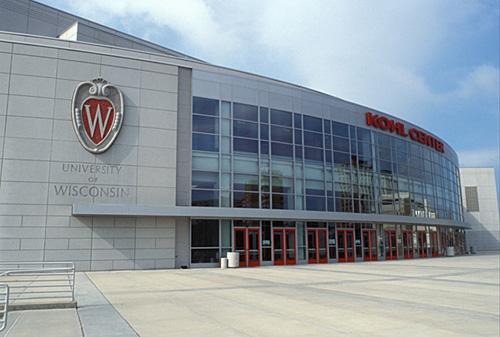A proposed City of Madison ordinance that would require big buildings to report their energy usage has been postponed for two months to create a more informed process.
The benchmarking ordinance would require city buildings more than 15,000 square feet, commercial buildings greater than 25,000 square feet and residential rental buildings with 35 or more dwelling units to report their energy usage as a score from one to 100.
The proposal said benchmarking is a practice that measures a building’s energy efficiency, water efficiency and carbon emissions. It also compares the building’s performance against similar buildings in the region and allows owners to become aware of the energy performance of their buildings.
The next step in the proposal process will be the creation of a special ad hoc committee of real estate representatives and energy conservation experts to study ways to meet the energy goals of the ordinance, according to reporting from the Wisconsin State Journal.
Ald. David Ahrens, District 15, said the buildings would use the same software the Environmental Protection Agency uses, which allows people to put their energy usage up and describe the buildings characteristics such as age, size and hours of operation.
The buildings are then given a score from one to 100 based on where the building is in energy use relative to other similar buildings in the same climate zone, Ahrens said. The next step in the process is that the owner or operator will then report the score, but not the specific usage, he said.
Ahrens said this score just represents where they stand in relationship to the other big buildings. The score is then made available to those interested.
The ordinance would make buyers more informed for their decision-making, Ahrens said. For example, buyers can ask for the energy usage when buying a house in Wisconsin. But he said if they are renting or buying a building, the energy usage is private and does not legally need to be made available.
In this way, knowledge of energy usage would make customers more informed in the short term and more satisfied in the long run, Ahrens said.
“You need information to be able to operate a free market. People’s energy comprises about 30 to 40 percent of the costs of operating a building here, so it’s an important bit of information to have,” Ahrens said.
The ordinance would add value to buildings that are more energy efficient by incentivizing sellers to make their buildings more efficient, thus making consumers more likely to buy them, Ahrens said.
According to the proposal, the ordinance would also serve to help Madison meet its energy efficiency goals and already exists in several other cities.
Places that are energy efficient are more valuable, Ahrens said, adding they also reduce greenhouse gasses.
Ald. Chris Schmidt, District 11, said while the ordinance has positive aspects, it is important to make sure it is implemented properly.
“In general, benchmarking sounds like it could be a benefit but how we implement it and what exactly we’re measuring are important questions to answer,” Schmidt said. “The next step is I will be naming a committee to discuss the proposed ordinance, what the ordinance would contain and how we would implement it.”
















